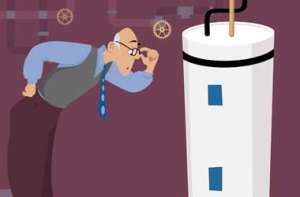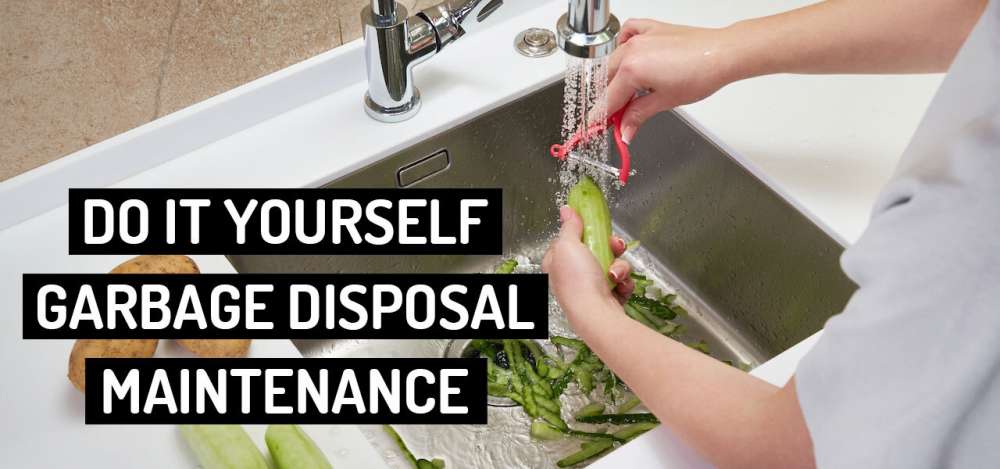Learn About Hot Water Heaters:
- How Much Water is Wasted Every Day with a Leak?
- How Do I Know if I Have a Leak?
- Where is My Leak Coming From?
- How Soon Does Mold Grow After a Leak?
- How Long Does Drywall Take to Dry Out?
- Act Fast When You Suspect a Water Leak
- How Do I Know if I Need Professional Repairs?
- When Do I Need to Act on Water Leak and Water Line Repair?
How Much Water is Wasted Every Day with a Leak?
The amount of wasted water depends on the severity of the leak in question, and how many leaking faucets, toilets, or outdoor hose bibbs you have. For example, let’s say you have two faucets in your home that are leaking at a rate of 10 drips per minute. Between these two fixtures, you can expect to waste almost 30,000 drips per day, which breaks down to one gallon per day, per faucet, adding up to nearly 700 gallons wasted per year. In addition to the guilt you should be feeling about wasting all that water, you may want to know that leaks also spend money in higher bills. Even small leaks can add up to $20 or $30 to your monthly water bill, which may not seem like a lot, but in just a year adds up to $360.How Do I Know if I Have a Leak?
The first sign of a leak that they get comes as a higher than average water bill for many homeowners. Most bills include a chart showing your water usage for the last few months, a sudden spike in usage can be a sign of leakage somewhere in the water supply lines or fixtures. Reduced water pressure at more than one faucet or showerhead can also be a clue that you have a water supply pipe leak somewhere. While leaking faucets and running toilets make their presence more than obvious, we regularly see those fixtures. Discovering these hidden leaks early on is critical to preventing extensive water damage to your home or property. There are some signs that you have a hidden leak somewhere in your home that are important to be on the lookout for.Where Is My Leak Coming From?
Narrowing down the location of a well-concealed leak is a challenge, not just for the homeowner, but often for even the most experienced plumbers as well. It is critical to find the source of a water leak early, as long-term leaks can cause thousands of dollars in damage in a short amount of time. The number one claim against homeowner’s insurance policies is from water damage caused by plumbing leaks. Water Supply Lines: The lines from the city that provide your water are pressurized to facilitate flow to every home in the community. Your home’s supply comes from a single pipe through a meter to measure usage, followed by a pressure regulator. The pressure regulator is a device that is used to step-down the pressure of the water entering your home. If allowed to enter your home at its unregulated pressure of 100 pounds per square inch (psi), it would damage your plumbing and fittings. Usually, water comes into the house at pressurization of between 30 – 50 psi, which is sufficient to deliver water to a two- or three-story home. Even with this lowered pressure, a broken water supply pipe can release hundreds of gallons per hour into your home. Sink and Bathtub Faucet Leaks Detection: The most obvious is sometimes the most ignored. We tend to “get used” to a dripping faucet, perhaps we even miss the sounds of it once it is fixed. While a dripping faucet doesn’t rank as a plumbing emergency, any leaks around your home need to be addressed quickly. Leaking faucets never repair themselves and can waste hundreds of gallons of water every month, leading to higher bills. Toilet Leaks Detection: One of the most used plumbing appliances in the home, the toilet is susceptible to leaks both inside and outside the tank. The supply valve and flex hose connection can break down from corrosion, causing significant leaks and broken flanges at the base that can leak raw sewage into your floors. The inside of the tank has several moving parts that wear out from regular use like handles and fill valves. Other components like the rubber flapper between the toilet tank and the bowl are damaged by a combination of hard water and chemicals. Regardless of the reason, when these parts become worn and cause leaks, it’s time to replace them. Water Heater Leaks Detection: Any leaks around your water heater are certainly cause for alarm, especially if the tank is leaking from the seam. Seam leaks on a tank-type water heater can signal that the tank will fail soon, leaving behind forty to seventy gallons of water for you to clean up after. The cost to repair that kind of water damage will often extend into thousands of dollars.How Soon Does Mold Grow After a Leak?
Mold is a fungus that occurs anywhere excessive moisture is present, producing airborne spores that quickly reproduce. Once a leak has started, mold growth can begin within 24-48 hours of the first exposure to water and continue to grow until the leak is fixed and the contamination is repaired. Repairing a home after mold damage from a water leak is a process called “mold remediation” that requires removal and replacement of any contaminated surfaces. Depending on the location and severity of the water damage, this remediation may include replacement of drywall, ceilings, studs, and floorboards.How Long Does It Take for Drywall to Dry Out?
The best answer we can give to that question is, “it doesn’t matter.” Once the drywall is directly exposed to water, it begins to lose its structural integrity as the paper fibers that make it up start to disintegrate. Wet sheetrock will retain moisture for months, and in that time, your drywall is a perfect spot to grow mildew and mold. It is recommended that any drywall that is within 2 feet of any water damage should be replaced.Every year, water leaks and broken water lines are responsible are the #1 claim against homeowner’s insurance policies. Once a water leaks starts, so does the damage to your home.
 ACT FAST WHEN YOU SUSPECT A WATER LEAK
ACT FAST WHEN YOU SUSPECT A WATER LEAK
Every second that a water leak or broken water line continues, it will cost you money. The water damage to floors, walls, ceilings, carpets, and family heirlooms can cost tens of thousands of dollars over and above the cost to repair to your plumbing. Smaller leaks, like dripping faucets and running toilets can add an additional $100 to your water bill in just one month.
Faucets that are just starting to leak today will get worse over time, creating rust spots in the metal of your kitchen and slop sinks. Bathroom sinks will see the enamel around the drain start to wear away, leaving the metal foundation exposed to the water drip.
Leaking water supply lines beneath your foundation will quickly cause the soil to shift, leading to foundation damage, as well as damage to walls, floors, and ceilings.
 HOW DO I KNOW IF I NEED PROFESSIONAL REPAIR?
HOW DO I KNOW IF I NEED PROFESSIONAL REPAIR?
There are several tell-tale signs that your plumbing system is in trouble and may have sprung a leak. Faucet and shower leaks are obvious, as are running toilets and leaky outdoor spigots. The hardest leaks to find early enough to prevent disaster are in your walls, and inside of kitchen cabinets and bathroom vanities.
Look beneath your sinks each time you use the garbage disposal, and look for any signs of damp wood, mildew type smells or dripping water. Take note of any warped or buckled spots in your wood floors as well as any damp carpeting. Water stains on your drywall or ceilings is indicative that you need water leak or water line repair in Houston as well.
Water supply lines can pump anywhere from fifteen to thirty-five gallons per minute into your home. Imagine that volume of water pouring out of a pipe for one or two days before it’s noticed? We see it every day in the field, and it is always catastrophic.
Leaks are limited to just water supply lines, faulty water heaters can burst without notice, spilling forty-to-seventy gallons into your home. Outdoor plumbing fixtures that develop leaks often go unnoticed for quite some time, causing damage to your landscaping and even your foundation. By the time you see the cracks in the sheetrock, or your floors are suddenly uneven, the damage has already started.
Inspect your yard on a regular basis to ensure that you don’t have any standing water or leaky fixtures. If it’s summer in Houston, with 100-degree temperatures and there’s been no rain for two weeks…and you’ve got puddles in your yard…CALL A PLUMBING COMPANY!

WHEN DO I NEED TO ACT ON A WATER LEAK AND WATER LINE REPAIR?
The best time to address any water leak or water line repair is when it occurs, in order to prevent ongoing water damage. Of course, a dripping faucet or a running toilet doesn’t quite warrant a 3:00 am emergency call, but a broken water supply valve in your attic would.
If you’re starting to notice diminished water pressure around your home, or have already repaired a leak or two, consider a whole-house re-pipe. Re-piping now lets you restore your water pressure, install modern and improved fixtures, and protect your home and everything in it from devastating water leaks.
Water leak and water line repair in Houston doesn’t just happen by itself, it takes trained and licensed plumbers. Nick’s Plumbing and Air Conditioning only employs licensed and experienced professionals to tackle everything for a leaky toilet to your most difficult plumbing issues.
When you find yourself in need of water leak and water line repair in Houston, call Nick’s Plumbing and Air Conditioning for a cost evaluation or a second opinion.
We’re on the Way!
THE POTTY MOUTH GUYS SHOW:
Water Leak and Water Line Repair in Houston
Nick’s Plumbing & Air Conditioning Live Video Transcription:
I’m John Eccles. I’m Richard side. Today we’re going to get going in depth about water leak and waterline repair in Houston. John, why is it so important to act? If I have a small leak, even the smallest leak in my house, why would that be important? The biggest reason Richard is of course, that any ongoing water leak, whether it is a faucet or a supply pipe under your house, is that it’s going to cost you more and more money the longer it goes on. Really? Yup. Ah, I think that would be common sense. Water leaks and faucets will only get worse over time and the constant flow of water will begin to erode the enamel in your bathtubs, your sinks. Yup. Anything else? Toilets. Yeah, right. Absolutely. That constant dripping, the constant moving of water will eventually hurt those faucets and fixtures.
It’s going to go into the cabinets, the walls, right? Yeah, absolutely. It’s going to take the path of Luther resistance. That’s exactly right. And then what’s going to happen? Oh, well, once that happens, you know, then you’re going to have to start trying to detect it. And the water supply lines are also pressurized, which, so instead of that just being an annoying drip or leaking a faucet, you have a constant pressurized stream of water flowing into the walls and floors. So not only do we have where it would be low pressure, it could also be high pressure. Absolutely. It’s not a gravity fed system. So it’s coming on pressure. So that can happen. And you know, quite a bit of time, there’s a lot of damage that can accumulate. Absolutely. So we don’t want to let that go on. Right? Absolutely not. So we’ve said it on the many shows, many times the number one claim against homeowners insurance policies every year is caused by water.
That’s right. Water dam and typically caused by plumbing leaks. Right? Yeah. And it’s just the pipes start to leak. But I mean, what about water heaters? The actual toilet itself, outdoor plumbing fixtures, you know, all develop leaks and every one of those leaks are going to cost money. Absolutely. You’ve got to recognize the don’t procrastinate, right. Absolutely. Get those fixed. Today we want to educate you guys a little bit about the symptoms of water leaks. Water leaks can make themselves known in various different ways. A faucet leak for example, isn’t easy to spot water leak. It’s on top of the sink or it’s in the tub or in the shower, right? You can see that. You can also hear it, especially at three in the morning when that endless drip, drip, drip is keeping you awake. Right? It’s exactly right. Hardest leaks are fine to find are the ones that are hidden from day to day view, but there are ways to detect water leaks in and around your home.
One of them is to check underneath your cabinets and vanities on a regular basis. Make sure that they’re dry. Make sure that you’re not smelling anything coming out of that cabinet. Right? Yeah, yeah. What you’re looking for or any signs of leaks, possibly in the cabinets, vanities, maybe a visual leak where you have the sloping bottom. That’s, you know, only a sign that it’s been wet and that it’s, you know, smells damp. You know, like you were saying that mildewy smell, it gives you a clear indication that you might have something going on. Most of those vanities, this actually happened to me, those vanities, the cheaper ones, they’ve got that particle board bottom and if it had been and is dripping on it, it it’ll, it’ll be fast. Yeah. And it doesn’t take much for mold to start growing either. Oh no, this is covered.
That too when I was much younger than right. I wasn’t paying attention as much as I do now. That in third grade with a sandwich. That’s right. Another sign of a hidden water leak would be water stains on dry wall. Yeah. I mean that’s a telltale sign, which is awesome. Often a supply pipe inside the wall, it’s leaking, right? Your domestic water system. Right. Hot or cold. And for you guys that are having galvanized piping, what this can and what can happen is it could create a pinhole leak. It leaks on the sheet rock in the ceiling. Let’s say we’re in the wall and then it patches itself and how does it do, how does it do that? It’ll actually get another piece of rust and plug the hole for a little bit, but it’s only a matter of time before that starts to come back.
Right? Yeah. So carpets damp, right? Yeah. Hardwood floors buckling. Yeah. Those are all telltale signs. You’ve got a problem. Yeah. Yeah. Also you have to pay attention to your entire yard as well. You know, the ground around your house can give you a lot of information about the condition of your plumbing. You know, any areas of pulling of water, ponding water that you haven’t seen and suggest that there might be an issue with the pipes underneath the ground that are just like completely, completely saturated. If it’s a typical summer in Houston, a hundred degrees outside for two straight treat, no rain, you know, and the grass is starting turn Brown and all of a sudden you gotta jump puddle and you need to call somebody that’s, that’s not rainwater, that’s an issue. Yeah. Especially if you’re not sure where the water is actually coming from. The Lake could be from under your foundation, could be from underneath your pier and beam home. Right. Which is in a very short span of time will cause a lot of damage and can create other issues besides just fixing the plumbing. Oh, absolutely. Like doing wood replacement.
Most common issues associated with ponding water in the yard as a broken water supply pipe either on your sprinkler or your domestic. Yeah, right. That’s going to be one of those two. You could also have maybe a broken sewer line. Yeah. That’s also true. If you’ve got a stoppage and that broken sewer is able to push water up to the surface and not only notice it, you might smell it too, you know, hoes, hoes bibs are another big culprit. You know those leak a lot. Those packing nuts end up going out and those in a drip gives you way more water than you think you know, in a 24 hour period than you would imagine. Yeah. Most people leave their hose hooked up to the hose bib so that hose bib starts dripping and then it just goes to the end of the hose, right.
Wherever you got the end of the hose, I try it and then all of a sudden you’ve got a moisture or standing water there and you can’t figure out what that is. Right. But it’s actually the host boom. That happens actually a lot. A lot more than people understand and yes. Yes. Until they see their water bill and they’re like, where’s that coming from? Yeah. It’s like I don’t know. But go ahead though. Sorry. I’ve got a pool so I leave my water hose hooked up and if nobody’s in the pool I’ll just shove it in the pool. And so when I need to fill it up I just turn it on cause I’m lazy. Right, right. So what ends up, that thing starts dripping. I’ll never know. It’s already in the pool. The pool. You have no idea. Yeah. And then when we go swimming, of course I take it out and I’d see it then.
But that could be a week or two down the road. Yeah. Who knows. Yeah. Yeah. But all these things really needed to be checked from Tom and Tom or at least given notice. Cause if not like we’re saying, the longer it goes on, it creates may way more issues I. E. foundation problems as well. We didn’t talk about that. Absolutely. Right. So by the time you noticed this, like cracks in your walls could be too late. Yeah. You’ve got stuff in the ceiling. You need to pay attention to what is going on with your home to prevent excessive damage. That’s the whole point, right? Remediation starts. As soon as you discover that, don’t let it go on. Don’t let it keep moving forward. You need to remediate the issue. Yeah. Call a plumbing company. Right. And if it’s that bad, you need to call a remediation company to excavate that or actually a backup. Wait that water. Absolutely. Get it out of there.
All right, so let’s assume that you’ve discovered a leak somewhere in your home. What is the first thing you should do? Call nine one one. Depends what it is. Right? If I can see the league and it’s a drippy faucet. Okay. I can, I can turn off the knob underneath the sink and make it stop. Right. The toilet’s running. I can try to lift up the tank lid and try to push my thing down. Let’s call it a thing cause people don’t know what it’s called, but it’s called an actuator valve. Try to push that thing down. Right. And get it to quit leaking. If that doesn’t work, then turn it off at the wall. Right, right. You can always turn it off at the wall and then you call some money. I’ll try. Right. Get that fixed. Now if it’s something different, like you see something on the sheet rock you need to call somebody immediately.
Absolutely. And get this done. But first go outside, turn your water off. Yeah, that’d probably be, yeah. If it’s, it turns the water off, it’s an emergency. That’s what you’re going to want to do. If it’s super severe, you know, broken supply line or something like that, it’s important to get to the main water, shut off and turn it off to the house. That’s right. You’ve or aren’t sure where that’s at. You know, then it’s probably a good time to try to find that at your house and know where it’s at and locate it. So you know when that emergency happens, you can shut it down and you’re going to feel safe and your family’s gonna be safe. That’s right. And when you hire that plumbing company, he makes sure that they take you around and show you how to turn the water off to your home.
It is very critical. We had a call the other day in the Heights. Somebody was in his attic and he had CPVC pipe and they stepped on our pipe and it broke in half. They couldn’t get the water off. Right. I ended up going myself, took me, by the time I left the office, got there, got the water off. It had already been blowing, full blown 50 PSI for 20 minutes. Oh, houses flooded over. Somebody accidentally stepping on the pipe in the attic. Yeah. And that goes back to the homeowner, didn’t know how to turn the water off. Right. Very important. You know, normally these, these things, if you catch them early, they’re really not too bad. And there’s a couple of things that go into that, but the repairs aren’t normally extensive depending on the age of the home of course. But the whole thing is, is, is catch it early.
That’s right. Yeah. And when you’re talking about waterlines, hot and cold, I typically will give people one leak and we will repair that. That second leak on a high pressure line. No, you’re getting new piping. It’s just dangerous. It’s, yeah. It’s just going to keep going. It’s not going to fix itself. Right. That’s exactly right. That’s right. You know, when you’re talking, the amount of, and when we say is dangerous, it’s not done. We’re all gonna be, it can be, but physically dangerous. It’s not really that it’s financially dangerous. It can create some damage, man. Yeah. Financially. Yeah, sure. Yeah. You know that not knowing where that shut off was in the attic created his entire home, the flood before I got there, and that was bad. Just a headache. Oh yeah, yeah. Absolutely. So to put a nice little bow on the topic of water leak and waterline repair, just be aware of the clues, your plumbing systems trying to give you lower water heater pressure or actually water pressure, right?
Lower pressure on the hot side from the water heater. Toilets, dripping faucets drip and things of all that nature are going to degregate your plumbing fixtures. It’s gonna create more money in the fix in the future. So what we’re saying is get ’em fixed. Don’t wait. The more you weigh, the more it’s gonna cost. We promise. This said in our first time. That’s right. And if you have any of these symptoms that we’ve talked about in your plumbing, think about calling us. You know, we’ll come out and check it out. You know, that’s what next plumbing does. Professional plumbing company gets in there. Try to avoid handyman’s chucks in the trucks at all cost. A lot of times those guys might not be proficient at finding and taking care of those leaks. They’re definitely not going to have the insurance to cover if they flood something. So let’s put it that way. And your insurance company will probably deny the claim if you didn’t hire professional plumbing company to fix it in the first place. That’s right. We’ve seen that a few times. More than once. Yeah. Thank you guys. We’ll see you next week. See y’all next week.
So, John, a pause was way long, wasn’t it? Why is it so important to act if we have even the small leak somewhere in my house? Why is it so important? Are we still going to go or were you, Oh God.


























